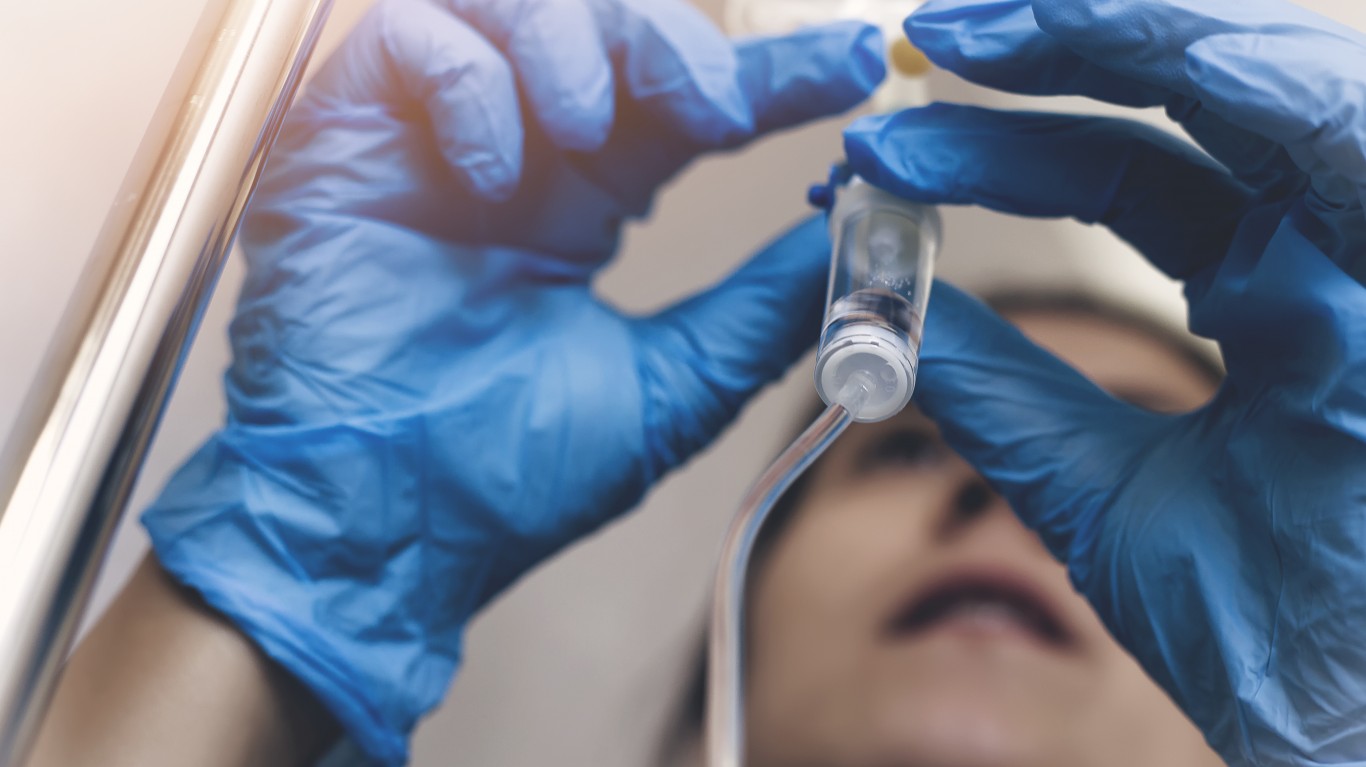Health and Healthcare
How Delayed Drug Approval Is Punishing Bio-Path Stock

Published:

What is it like to have a stock plunge 90% in less than a year and wipe out a huge amount of market capitalization? Ask Bio-Path Holdings Inc. (NASDAQ: BPTH) CEO Peter Nielsen. He and his board of directors have had to manage shareholders who have suffered a drop from a 52-week high of $73.52 to $6.50. Shares actually have traded as low as $1.84, which is barely 5% of their peak for the period.
Bio-Path recently released an update of its pipeline and forecasts for 2020. Among other things, it updated some of its clinical trials. The company was particularly optimistic about the Phase 2 study of its prexigebersen in untreated and refractory/resistant acute myeloid leukemia (AML). It changed its plans for advancing the drug’s tests about a year ago, when it issued a clinical update of its long-term development efforts.
Investors did not take that announcement well. A sell-off, which began in December, continued, and things have improved very little in the past several months.
Investors turned on Bio-Path and its management when the company said it had a registered direct offering of 808,000 shares and 606,000 warrants. The offering price was $9.90 a share when the deal was announced at the closing on November 25.
Bio-Path says it is “leveraging its proprietary DNAbilize antisense RNAi nanoparticle technology to develop a portfolio of targeted nucleic acid cancer drugs.” It has several of these drugs in its pipeline, and it is uncertain whether any of them will become a blockbuster drug. It has Phase 2 trials for untreated AML and high-risk myelodysplastic syndrome patients.
Bio-Path also has made an Investigational New Drug (IND) application for treatments of solid tumor cancers, which include both ovarian and endometrial cancers.
Bio-Path stock is down 98% in the past five years. In February 2018, it had to make a one-for-10 reverse split to maintain its listing on the Nasdaq Capital Market. The stock has fallen so sharply that Bio-Path’s market cap is only $19 million.
Midstage data on its prexigebersen for AML pushed shares up sharply in March 2019, but the stock quickly sold down.
Bio-Path released dismal earnings for the third quarter of 2019. It lost $2.2 million, compared to $3.1 million in the same period of the year before. The silver lining is that the company had $15.4 million in cash as of September 30.
Bio-Path lost $6.75 million in 2016, $7.02 million in 2017 and $8.58 million in 2018. Among the risk factors in the company’s 10K is that “We have incurred significant operating losses since our inception. As of December 31, 2018, we had accumulated net losses of $47.7 million.”
While Bio-Path has raised a fair amount of money compared to its rate of losses, it may lose money for several years as its drugs make it to market. There is a chance most will not make it at all because of the complexity of these drugs and the process they go through to be approved. The fact that a treatment is in trials does not mean it will be approved.
Bio-Path has only eight employees, according to a recent SEC filing. Drug development and medical duties consultants do a large amount of the company’s work. CEO Nielsen has extraordinarily high compensation. It is rare that the head of a small, money-losing company would make so much.
Nielsen also owns 1.33% of the company’s shares.
Bio-Path has five directors, and only three are considered independent for SEC purposes. One is Douglas P. Morris, who is also director of investor relations.
The company’s prospects are dim, which shows up in the stock price. Among other things, Bio-Path’s losses could continue indefinitely. There is no reason to think the company can raise more money.
Drugs that are in trials often fail, so Bio-Path investors need to gamble that one or more of its treatments will make it to market. Past performance indicates that it could be difficult.
Bio-Paths shares are very thinly traded. On average, the stock trades 164,000 shares a day, which means shareholders would have difficulty selling large blocks of stock without affecting the price.
It is easy to believe that investors may have lost confidence in Nielsen. The goals he has set for the Bio-Path are lofty. So far, he has been unable to deliver, and both time and money are running out. That may well put more pressure on the share price.
Finally, investors have to believe that a company with eight employees and a number of consultants can prevail in a hyper-competitive market.
Are you ahead, or behind on retirement? For families with more than $500,000 saved for retirement, finding a financial advisor who puts your interest first can be the difference, and today it’s easier than ever. SmartAsset’s free tool matches you with up to three fiduciary financial advisors who serve your area in minutes. Each advisor has been carefully vetted and must act in your best interests. Start your search now.
If you’ve saved and built a substantial nest egg for you and your family, don’t delay; get started right here and help your retirement dreams become a retirement reality.
Thank you for reading! Have some feedback for us?
Contact the 24/7 Wall St. editorial team.